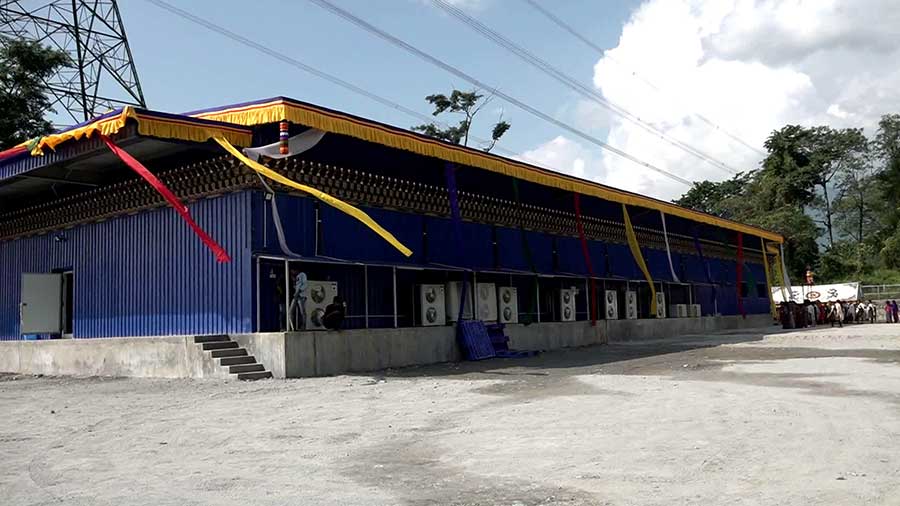
Farmers in Sarpang need not worry about their harvests going to waste. A cold storage facility was inaugurated at Samtenling Gewog yesterday. The facility will store surplus vegetables and fruits in the peak season and make them available during the off-season.
The facility is equipped with a temperature monitoring system and cooling fans inside every chamber to keep the products fresh for a longer duration. It is expected to benefit more than 20 schools in the district and benefit farmers’ groups and other individuals from other neighbouring districts.
“People who supply vegetables and other things are not able to supply it on time when we run out of stock. But now with access to a cold storage facility, it will be very easy to store vegetables, fruits, dairy products and meat for all time requirements,” said Pemba T Gyeltshen, District Education Officer of Sarpang.
“Henceforth, we can bring our vegetables and fruits and store them in the cold storage and sell them during the off-season. We can also store meat and sell when there is a better price,” said Jigme, Singye Gup.
“Sarpang is very hot and cold storage will be extremely helpful in keeping the farm produce fresh not just for months but for a year. Farmers are now showing interest to grow potatoes here without having to buy from other districts,” said Suk Dorji Yonzon, Shompangkha Gup.
The facility was constructed for nearly Nu 38.16 M. The facility can store up to 300 metric tons of agricultural and livestock products.
The government included the construction of cold storage as one of the critical components of the Economic Contingency Plan 2020-2021 to ensure food security and achieve self-reliance.
The Agriculture Ministry prioritised and initiated the construction of three cold stores at strategic locations in Sarpang, Trashigang and Wangdue Phodrang.
The locations are identified depending on the production of nine valuable crops and vegetables, the number of schools and students under the School and Hospital Feeding Programme, the urban population in the districts and access to potential markets.
Karma Wangdi, Sarpang
Edited by Sonam Pem










